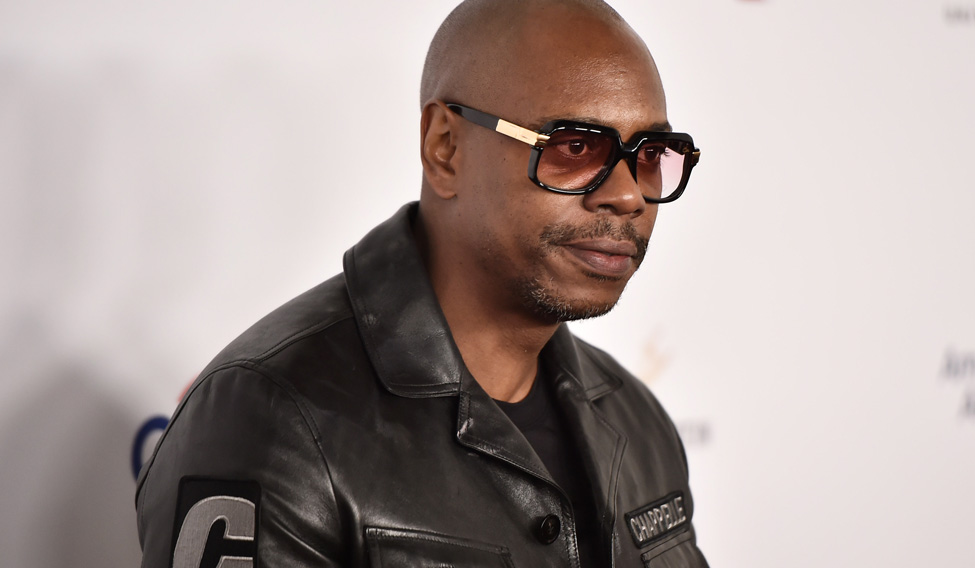Comedian Dave Chappelle is nothing if not quirky. Sometimes, his hands slide over his lips and his eyes glaze over, almost as if he is enjoying a long drag from a phantom cigarette (if he is not having one already, that is). Occasionally, he pretends as if his own jokes crack him up. In the midst of a performance, and usually after an intentionally juvenile punchline involving him kicking some woman in her private parts, he mirthfully doubles up on the arena. Before the audience comes to understand that they were played by the oldest trick in the book—misdirection—the comedian launches into a philosophical, provocative discourse on race, violence and society.
Chappelle was a rising star, with his Comedy Central Chappelle Show earning rave reviews, when he decided to ditch it in 2005. The channel reportedly offered $50 million, but nothing could change his mind. Some of the skits in the show, like Chappelle's essay of a blind black man named Clayton Bigsby who believed that he was a white supremacist leader, were groundbreaking, to say the least. But Chappelle had made up his mind. And he virtually disappeared from the scene, with reports stating that he had travelled to Africa. It was only in 2015 that he made a comeback on stage with his sharp, relevant and hilarious, if not controversial, series—Age of Spin and Deep In The Heart of Texas that premiered on Netflix. Both won the Best Comedy Album at the 2018 Grammys where he made a cameo at the openings along with rapper Kendrick Lamar. While the Age of Spin is Chappelle at his precocious, energetic best, Deep In The Heart takes on a more personal, conspiratorial tone.
Both Age of Spin and Deep In The Heart of Texas were searing specials, the vintage Chappelle on full display. When it comes to addressing the intricacies of race in the US, Chappelle proved that there was none better. He spoke about the rape accusations surrounding comedian Bill Cosby, coming to terms with the fact that he was a huge admirer of the man, the four times he met O.J. Simpson—a former NFL athlete notorious for the acquittal over the death of his former wife Nicole Brown—and digs at fellow comedians. He is most incandescent when he puts himself down lightly. On the issue of police encounters, he says,"I am a black man, but I am also Dave Chappelle"; he then narrates an anecdote about him ditching a protest in Flint, Michigan, to attend the glitzy Oscars.
But the specials—along with the ones that came afterwards, like Equianimity and The Bird Revelation—were ripe for criticism, especially after some of his comments on the transgender community were globally panned. And gender was not a topic he considered to be on the same plane as race in the US. In the Age of Spin, he goes meta—reminiscing about a time an audience member reacted while he was speaking about Bill Cosby. A woman rushed the stage yelling "women suffer" over and over again. "'I know," says Chappelle, "Don't forget that we all have mothers, daughters, sisters and wives who we want to see do well and not be held back by their gender."
"B****, how the f*** are you [a white woman] going to yell at a black man about discrimination? She didn't get it. Come on, white woman, you know what it is. You was in on the heist, you just don't like your cut."
White flowers at #GRAMMYs are a powerful symbol, but here's the reality:
— Meghan Schneider (@meghanloisann) January 29, 2018
Dave Chappelle mocks survivors of sexual assault. Wins a Grammy.
Kesha stands up to her abuser. Doesn't win a Grammy. #TimesUp up on symbolism. BELIEVE WOMEN! Change the system!
In the later 2017 The Bird Revelation, he takes digs at fellow comedians like Louis C.K. for the allegations of sexual harassment that came up against him. But he clearly draws a line in the sand. "One lady said that Louis masturbated in front of me, ruined my comedy dreams,'" he says. Then I dare say, madam, you may have never had a dream. That is a brittle spirit." He later asks why the women, who complained that Louis pleasured himself while on the phone with them, did not hang up. "You don't know how to hang up a phone? How the f**k are you going to survive in show business if this is an actual obstacle to your dreams?" He then proceeds to ask if Martin Luther King would have given up on his dream if Louis ejaculated before him.
What does the award mean at a time the #MeToo movement has gathered steam? And given the hate that his fellow comedian Aziz Ansari has received for an article for his treatment of a woman that barely goes beyond the definition of a "bad date". Even while the participants at the Grammys wore white roses in a show of solidarity with the victims, is it a subtle statement that hints otherwise for the #MeToo movement?







